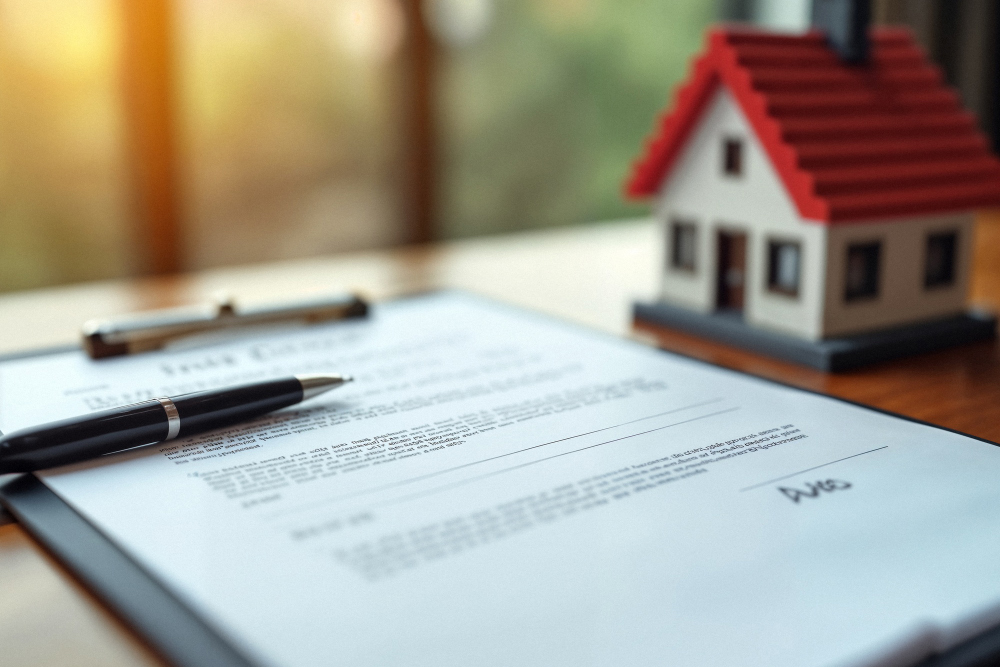The Beginner's Guide to Understanding Apartment Lease Agreements

When hunting for apartments for rent in Delray Beach, FL, one of the most important documents you'll encounter is the apartment lease agreement. For many renters, especially first-timers, leases can feel daunting, filled with legal terms and fine print that are easy to overlook. But understanding your lease agreement is essential to avoid potential disputes and ensure a smooth rental experience.
This guide will break down everything you need to know about apartment leases, from what they typically include to the key clauses you should pay attention to. By the end of this post, you'll feel confident reviewing any lease that lands on your desk!
What Is a Lease Agreement?
A lease agreement is a legally binding document between the tenant (you) and the landlord, outlining the terms and conditions of renting a property. Essentially, it sets the rules for your stay and protects both parties by clearly stating their rights and responsibilities.
Whether you're looking at luxury apartments in Delray Beach, FL, or a cozy studio, the lease agreement will be your go-to reference for all things rental-related.
Common Sections in a Lease Agreement
Apartment lease agreements may vary slightly based on the landlord or property management company, but most include these key sections:
1. Basic Information
- Names of tenants and landlord: This identifies the parties entering the agreement.
- Address of the property: Ensures you're clear about the specifics of the residence being rented.
- Lease term: How long the lease lasts (e.g., 12 months, 6 months, or even month-to-month).
2. Rent Details
This section explains the financial aspects of your lease, such as:
- Monthly rent: How much you'll pay each month.
- Payment date: When the payment is due (typically the 1st of each month).
- Late fees: Fines you'll face if you don’t pay on time.
Pro Tip: Make sure you and your landlord are clear about how rent should be paid. Are they asking for online payments, checks, or cash?
3. Security Deposit
Landlords typically require a deposit to cover any damages or unpaid rent. Important factors here include:
- The amount required.
- Conditions for refund (e.g., cleaning requirements and no damages).
- Timeline for refunding after you vacate.
Always ask for a receipt when submitting your deposit and ensure its terms are clearly outlined in the lease.
4. Utilities and Maintenance
Understanding who is responsible for which utilities (e.g., water, electricity, internet) can save you from unexpected bills. This section might also highlight:
- Which utilities the landlord covers.
- What’s on you as the tenant to pay directly.
- Maintenance responsibilities (e.g., who fixes a leaky faucet or replaces light bulbs).
5. Rules and Restrictions
Lease agreements often list rules tenants must follow to maintain harmony in the property. These might include:
- Pet policies (if pets are allowed, breed/size restrictions, pet deposits).
- Noise limitations (especially in apartments with shared walls).
- Restrictions on modifications (like painting walls or installing shelves).
Be sure you’re comfortable with these rules before signing, especially if you have a furry friend or specific living preferences!
6. Termination and Renewal Terms
This section explains:
- What notice period is required if you decide to move out (usually 30 to 60 days).
- Conditions for breaking the lease early (and any associated penalties).
- Whether the lease automatically renews at the end of the term or switches to month-to-month.
Red Flags to Watch Out For
While lease agreements are designed to protect both parties, tenants should be aware of potential red flags. Here are a few things to question or clarify before signing:
- Ambiguous Language: If any section feels vague or open to interpretation, ask for clarification.
- Hidden Fees: Look out for unexplained charges like “administrative fees” or “maintenance add-ons.”
- Unusual Restrictions: Rules that seem overly strict or invasive, such as frequent inspections without prior notice.
- Lack of Written Promises: Verbal agreements won’t hold up in disputes, so ensure all promises (e.g., fixing amenities) are in writing.
If something doesn’t sit well with you, don’t hesitate to ask questions or request edits. Never rush into signing!
Why Understanding Your Lease Agreement Matters
Here’s how taking the time to understand your lease fully can benefit you as a renter:
- Avoid Miscommunication: Clear terms reduce misunderstandings between you and your landlord.
- Protect Your Rights: Knowing your rights ensures landlords can’t take advantage of your lack of knowledge.
Plan Your Finances: Understanding rent, utilities, and fees helps you budget better.
Your Checklist Before Signing
Here’s a quick checklist to ensure you’re prepared to sign on the dotted line:
- Confirm rent, payment methods, and deposit terms.
- Review all policies (pets, guests, maintenance, etc.).
- Note the lease term and termination/renewal clauses.
- Ask for clarification on anything confusing.
- Keep a signed copy for your records.
By following this checklist, you’ll minimize surprises post-signing and set yourself up for a positive rental experience.
Apartments for Rent in Delray Beach FL
Navigating lease agreements is easier when paired with great customer service and supportive landlords. If you're looking for apartments for rent in Delray Beach, FL, consider Blu Atlantic Apartments. Not only do we offer expertly managed properties, but our team is also here to walk you through every step of the leasing process.
Schedule your personal tour of Blu Atlantic Apartments today and find your perfect home in vibrant Delray Beach.